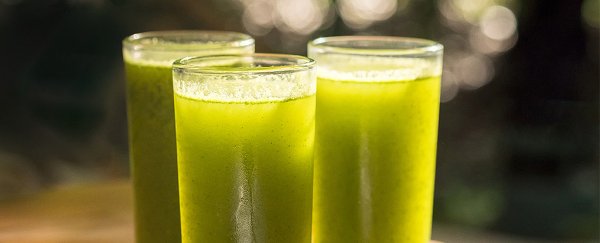Roughly 4 out of every 10 Americans believe that cancer can be cured through alternative remedies alone, according to a recent survey on views and opinions surrounding cancer and its treatment.
When it comes to combining alternative therapies with conventional evidence-based treatments, that figure climbs to 3 out of every 4 respondents. The startling figures reveal a critical lack of trust in medicine, and a lack of knowledge that could be putting a significant number of lives at risk.
The results were gathered as a part of the American Society of Clinical Oncology (ASCO)'s second annual National Cancer Opinion Survey. Although confronting, they sum up the concerns of US citizens in an age of uncertainty in healthcare and medical treatment.
"It's revealed a number of critical areas we urgently need to address," says the society's president, Monica Bertagnolli.
Just under 4,900 adults took part in The Harris Poll online survey earlier this year, responding to a variety of questions on cancer care and treatment, medical insurance, government action, and genetic testing.
Of those who took part, roughly 1,000 claimed to have had personal experience with a cancer diagnosis, while another 1,000 have had immediate family or loved ones with the disease.
Getting a diagnosis of "The Big C" is a fear most of us may have. Surprisingly, that number has dropped slightly over the past year, from 63 to 58 percent.
Similar trends were noted for other serious conditions, such as stroke and heart attack, hinting at general changes in our health concerns rather than cancer in particular.
Belief in the role lifestyle choices make in developing cancer has remained relatively consistent, with one third of respondents believing our personal actions were directly responsible in some way for the condition.
It's clear that a history of public health campaigns has had a significant impact on the population's beliefs. For example, some 80 percent of people link smoking with cancer.
Those in younger demographics are also a little more likely to associate drinking alcohol with cancer, with 34 percent of 18 to 37 year olds, compared with 25 percent of those over the age of 71.
There's also concern over possible responses to the ongoing opioid crisis, with 73 percent believing that any new rules that would make access to opioid painkillers harder shouldn't apply to those with cancer.
As encouraging as those sorts of numbers are, the survey revealed room where advocates of evidence-based medicine have their work cut out for them.
Just over a quarter of people think artificial sweeteners cause cancer, in spite of a lack of convincing evidence. Use of mobile phones are also still a concern for 16 percent of those surveyed, again in the face of studies that come up empty handed.
But the real concerns were responses to questions on the potential of alternative therapies, such as oxygen therapy or taking high doses of certain vitamins.
In the 18 to 37 age bracket, 47 percent of people surveyed agreed at least somewhat that cancer can be cured solely by an alternative therapy. On average, that number was 39 percent.
There's a lot to unpack in that number, and surveys do a horrible job of unravelling the psychology that informs such a response.
While we can be quick to blame ignorance, there's some complex sociology involving trust and identity behind belief formation, meaning these kinds of statistics warrant a lot more study before we can find solutions.
Still, alternative therapies are defined by a lack of scientifically scrutinised evidence, which makes them an ill-advised gamble for those who are most at risk.
"There's no question that evidence-based cancer therapy is necessary to effectively treat the disease," says ASCO's Chief Medical Officer Richard L. Schilsky.
"When patients are making critical decisions about which cancer treatments to undergo, it is always best to follow the evidence from well-designed research studies."
For 75 percent of the population, combining alternative therapies with conventional ones might seem like hedging their bets. After all, what's the harm?
But that lack of critical evaluation can mean there are hidden dangers, such as possible compromises to medically prescribed treatments.
Surveys like these are a vital barometer for the state of communication on health and medicine. Let's hope future results show a healthy turn in favour of science.
This research was published by the American Society of Clinical Oncology.
